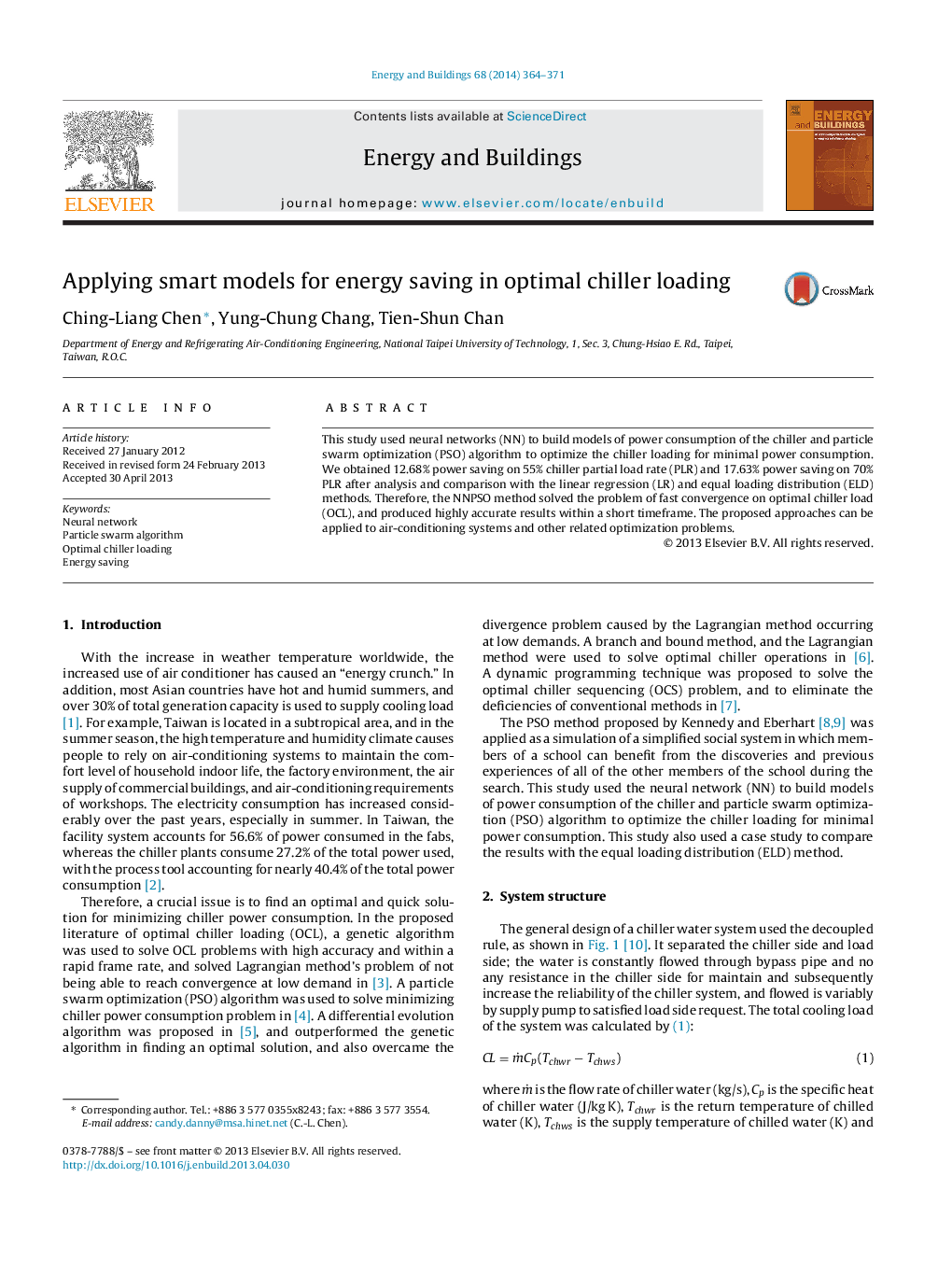| Article ID | Journal | Published Year | Pages | File Type |
|---|---|---|---|---|
| 10286009 | Energy and Buildings | 2014 | 8 Pages |
Abstract
This study used neural networks (NN) to build models of power consumption of the chiller and particle swarm optimization (PSO) algorithm to optimize the chiller loading for minimal power consumption. We obtained 12.68% power saving on 55% chiller partial load rate (PLR) and 17.63% power saving on 70% PLR after analysis and comparison with the linear regression (LR) and equal loading distribution (ELD) methods. Therefore, the NNPSO method solved the problem of fast convergence on optimal chiller load (OCL), and produced highly accurate results within a short timeframe. The proposed approaches can be applied to air-conditioning systems and other related optimization problems.
Related Topics
Physical Sciences and Engineering
Energy
Renewable Energy, Sustainability and the Environment
Authors
Ching-Liang Chen, Yung-Chung Chang, Tien-Shun Chan,
